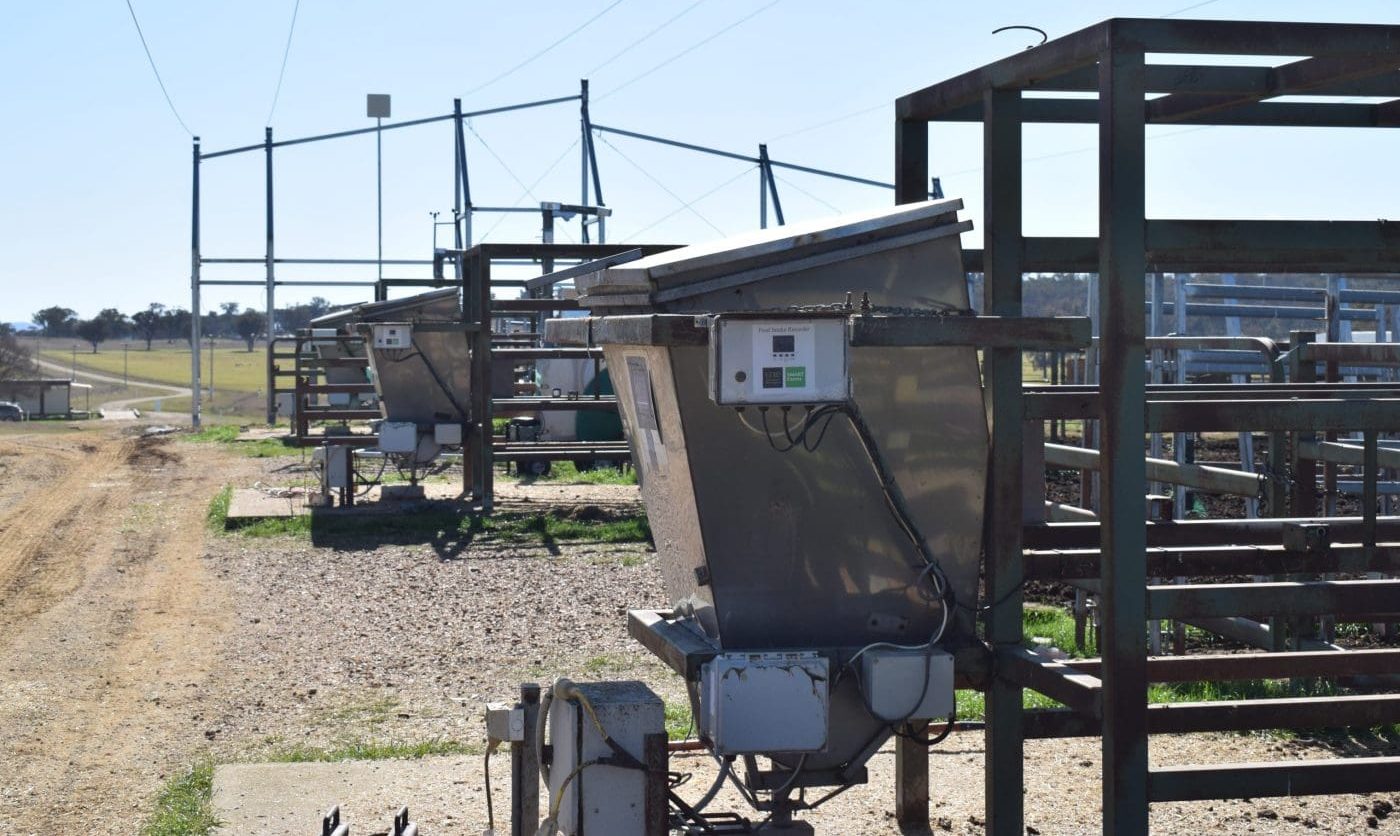
Green Feed Emissions Monitoring machines at the University of New England’s Tullimba feedlot.
A GENETICS summit in Armidale this week has heard that work needs to be done to make methane-related indicators available the industry in the short-term.
With sustainability-related indexes on its list of goals, the Australian Genetics and Breeding Unit brought together industry groups and researchers to discuss what is known about methane and how to make that information more user-friendly for breeders.
With several breed societies, stud breeders, corporate companies and industry groups in attendance, AGBU director Dr Steve Miller said the overwhelming message was that methane needed to be part of selection indexes in the short-term.
“There was a lot of enthusiasm about the subject and the message was that we need to get on with it and we can’t wait for perfect,” Dr Miller said.
“Breeding is a long-term game and the people in attendance couldn’t see this pressure on reducing livestock emissions going away any time soon.”
While work is happening to create an Estimated Breeding Value for methane, Dr Miller said it was a long-term prospect and the group looked at some traits where current indicators can demonstrate low-methane qualities.
Basically, any quality that makes animals more efficient, like feed conversion, yield and reproduction can contribute to lowering methane.
“If you put a price on the methane coming out of an animal than it is very similar to putting a price on the feed going in,” Dr Miller said.
“So, we ran through some scenarios for both sheep and beef – feed efficiency would be one thing and increasing market weight for the same days on feed would be another.”
What is “the perfect”?
University of New England’s Sam Clark and University of Queensland’s Ben Hayes, both attended the summit and are undertaking projects to make long-term methane reduction. Dr Clark’s project is with the view of making a methane EBV.
Dr Miller said the focus of the summit was to discuss whether the industry wanted to wait for the methane EBVs or find short-term solutions.
“Consensus in the room was to start now with a bigger cost on feed and add the full EBV in later,” he said.
“When asked what was holding us back on short-term solutions, phenotyping rose to the top and getting more measurements across more breeds.”
Dr Miller said some of the short-term indicators the group came up with could be deployed quickly.
“We had a rough time of about 12 months, but some of the breeds could have these indicators ready in a lot less than that,” he said.
“If they are keen to get going, we could test drive some scenarios with that increased feed price by the end of the year.”
Genetics the long-term solution
With the global push towards reducing livestock methane emissions, Dr Miller said improving genetics was the most likely long-term solution.
“If you make one percent change per year, which is typical for most traits – it might not seem like much but it is cumulative and permanent. If you have selected for low methane and don’t worry about it the next year, you will still be making those reductions in the years to come,” he said.
“If you take other interventions like a feed additives, you have to keep feeding it forever to keep getting that reduction.”
Dr Miller said communication between all sides of the industry was important in making sure the work was widely adopted.
“Something I have learnt is that you just can’t do enough communication in a lot of areas and this is no different,” he said.
“This will be new for a lot of people and as soon you do something like a new selection index it takes people a long time to get their minds around it – so, the sooner we communicate it the better.”




HAVE YOUR SAY